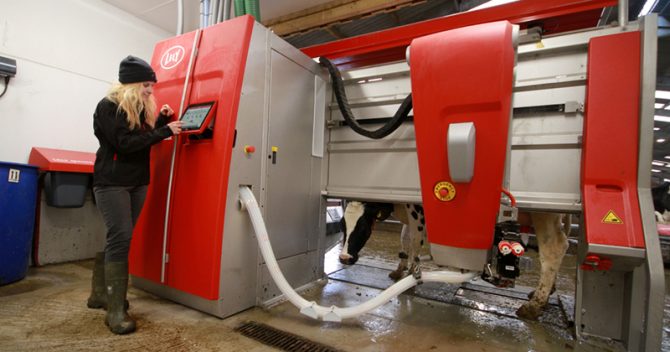Another wave of strike action by educators has been announced at 49 prisons and young offenders’ institutions.
The University and College Union (UCU) said staff will take action on Thursday 10 and Wednesday 23 June, following two days of strikes in May.
This has all come about due to a dispute between workers and Novus, the UK’s largest prison education provider.
The union has accused the provider, owned by the LTE Group, of a “failure to meaningfully engage with UCU over Covid health and safety concerns of prison educators teaching and supporting learners on the prison estate”.
Novus is also alleged to have launched complaints and investigations against UCU health and safety representatives, which the union said is “making it difficult for staff to raise safety concerns and impossible for any meaningful health and safety discussions to take place”.
The UCU’s general secretary Jo Grady said “all” Novus needs to do to halt the strikes is “stop its bullying behaviour, withdraw the unfair complaints and investigations against our health and safety representatives, and take staff safety concerns seriously”.
She said it was time for LTE Group’s board, which is due to meet on 15 June, to step in and “end Novus’ bully-boy tactics and work with us to resolve the dispute.
“Until they do so UCU will continue to support prison educators to take industrial action and protect themselves.”
Union members were balloted for strike action in April, with over two-thirds voting in favour.
Around 600 staff will take part in the June strikes.
MPs ‘shocked’ by ‘bitter’ strike dispute
Several meetings have been held between Novus and the UCU to resolve the dispute with the help of government industrial relations conciliation service ACAS.
The co-chair of the Justice Unions Parliamentary Group Liz Saville Roberts MP has written to LTE’s governors, calling on them to address the UCU’s concerns and withdraw the action against the representatives.
Saville Roberts, MP for Dwyfor Meirionnydd, said the 100 cross-parliamentary members of her group had been “shocked to learn about this increasingly bitter dispute”.
She said the UCU had given them “alarming” reports of Novus “intimidating” health and safety representatives, covert recording and exploitation of private union meetings, and fake social media accounts “set up to discredit UCU.
“We are told the board has now involved itself in the dispute by making unfounded allegations against union representatives and commissioning an investigation without reference to any formal procedures, which UCU describes as counter to natural justice.
“We are at a loss to understand why Novus has taken such a confrontational attitude towards the union at this dangerous time for prisoners and prison staff.
“We ask you to put staff health and safety first, withdraw any threats of action against UCU branch representatives and work with the union to address staff concerns in good faith,” she writes, offering the group’s help in resolving the dispute.
Provider complains of ‘false allegations’ about its board
Novus has said its relationship with the UCU has declined since it declined to institute health and safety procedure changes without the agreement of Her Majesty’s Prison and Probation Service and after it claimed it was given less than 24 hours to assess the impact of the changes.
Also, after employees reported “serious” concerns about the behaviour and approach of UCU representatives, including bullying and intimidation. Novus claims UCU has refused to have “meaningful engagement” about health and safety matters until allegations about its representatives are withdrawn, but Novus says these come from the employees.
“These events have led to an increasingly strained relationship between UCU and Novus,” the provider said, which have been inflamed by “false allegations” about them and the LTE board.
Novus refutes that it has ever refused to meet with UCU to discuss health and safety matters, ignored requests to meet with ACAS, made it harder for employees or UCU representatives to report concerns in that area, or intimidated representatives.
“UCU’s persistent misrepresentation of Novus to its employees and more widely in the public domain is a matter of grave concern for the group,” Novus has said.
“Such false allegations are damaging to employee trust in their employer and continue to erode a previously good working relationship between employer and union.”
The 49 prisons and institutions which will be affected by strikes are as follows:
- Her Majesty’s Prison (HMP) Altcourse
- HMP Birmingham
- HMP Brinsford
- HMP Brixton
- HMP Buckley Hall
- HMP Deerbolt Bowes
- HMP Doncaster
- HMP Durham
- HMP Featherstone
- HMP Hatfield/Lakes
- HMP Haverigg
- HMP Hewell
- HMP High Down
- HMP Holme House
- HMP Hull
- HMP Humber
- HMP Kirkham
- HMP Kirklevington
- HMP Lancaster Farms
- HMP Leeds
- HMP Lindholme
- HMP Liverpool
- HMP Northumberland
- HMP Oakwood
- HMP Onley
- HMP Pentonville
- HMP Preston
- HMP Risley
- HMP Rye Hill
- HMP Stafford
- HMP Swinfen Hall
- HMP Thameside
- HMP Wandsworth
- HMP Wealstun
- HMP Wormwood Scrubs
- HMP Wymott
- HMP/Young Offender Institution (YOI) Low Newton
- HMP/YOI Moorland/Lakes
- HMP/YOI Styal
- Her Majesty’s Young Offender Institution (HMYOI) Askham Grange
- HMYOI Cookham Wood
- HMYOI Feltham
- HMYOI Hindley
- HMYOI Isis
- HMYOI New Hall
- HMYOI Stoke Heath
- HMYOI Thorn Cross
- HMYOI Werrington
- HMYOI Wetherby








